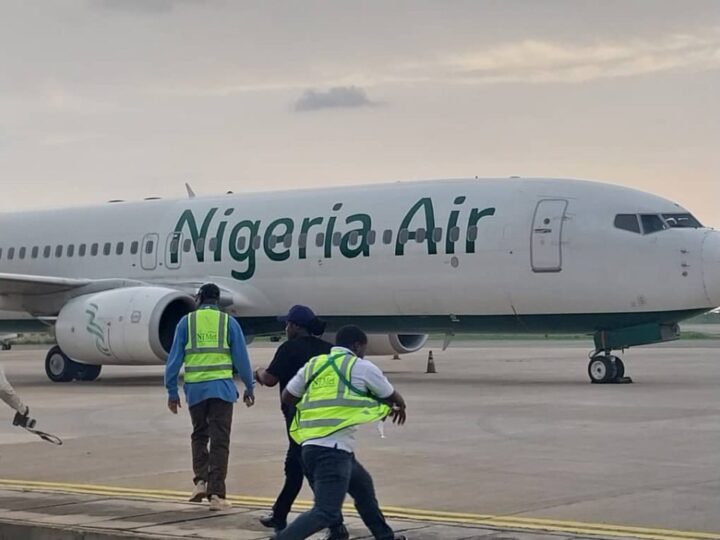Nigeria’s aviation sector has once again come under the spotlight as industry stakeholders strongly voiced their opposition to the revival of a government-owned national airline, insisting instead on the adoption of a flag carrier model. Their arguments, grounded in both past experiences and global trends, point to the risks of repeating mistakes that have historically burdened taxpayers while failing to deliver sustainable gains for the aviation industry.
At a recent industry forum, aviation experts, union leaders, and representatives of airline operators criticized the federal government’s lingering inclination toward re-establishing a state-owned carrier, recalling the troubled history of Nigeria Airways, which collapsed under the weight of mismanagement, corruption, and debt. They stressed that creating another national airline, financed by public funds, could expose the country to similar pitfalls, particularly at a time when Nigeria is grappling with fiscal pressures and competing development priorities.

Instead, the call is for a flag carrier model, where a privately run airline is designated to represent the country internationally, carrying the Nigerian identity but operating on commercial terms without dependence on government subventions. Advocates argue that this approach aligns with best practices seen in many parts of the world, where governments support their aviation industries through policy, regulation, and infrastructure rather than direct ownership.
Some stakeholders pointed to the controversial Nigeria Air project, which had stirred heated debate in recent years. Critics said the lack of transparency, coupled with questions about ownership structure and sustainability, made the venture unworkable. The experience reinforced skepticism about government-led airlines in an era where liberalization, privatization, and efficiency have become the industry’s benchmarks. They believe that a flag carrier model would allow Nigeria to harness private sector innovation and discipline while retaining the prestige of having a national representative in global aviation markets.
The financial implications of launching and maintaining a government-owned carrier were also raised. Aviation experts noted that with Nigeria facing revenue shortfalls, heavy debt service obligations, and urgent needs in education, health, and infrastructure, pouring billions into a national airline could amount to misplaced priorities. Instead, they argue that those funds should be directed toward creating enabling conditions for all local airlines, such as improved access to credit, lower operating costs, better airport facilities, and policies that reduce excessive charges and levies.
Union leaders added that Nigeria’s aviation workforce would benefit more from a thriving, competitive airline industry rather than a single government-backed carrier. According to them, a flag carrier arrangement would allow multiple domestic operators to compete for international routes, creating more jobs and opportunities than concentrating resources into one state-owned entity. They also emphasized that Nigeria’s aviation unions should be engaged meaningfully in policy decisions to avoid industrial disputes and build an inclusive industry framework.
Airline operators welcomed the renewed discussions but warned against politicization of the process. They argued that for a flag carrier model to work, the government must establish clear criteria for selecting an airline, ensuring fairness and credibility. Operators also requested policy consistency, noting that sudden changes in regulation or taxation often destabilize the industry and discourage long-term investments.
International aviation consultants observing Nigeria’s debate highlighted that countries with flag carriers, such as Kenya Airways and Ethiopian Airlines, have demonstrated that privately managed or partially privatized models can thrive with proper governance. These carriers have become regional champions, drawing significant revenue, building capacity, and enhancing their countries’ global image without being a drain on public resources. Nigeria, they believe, has the market size, diaspora network, and strategic geographic location to replicate such successes if the right model is adopted.
Passengers, who are the ultimate beneficiaries, also stand to gain from the flag carrier model. Stakeholders argued that increased competition among airlines would improve service quality, enhance safety standards, and stabilize ticket pricing. Many Nigerians remain wary of monopolies, especially after experiencing disruptions in past state-run ventures, and prefer an industry where consumer choice drives service excellence.
The federal government, on its part, has not given a definitive position on whether it will abandon the national airline idea, but recent signals suggest a growing recognition of the merit in the flag carrier proposal. Aviation policymakers have acknowledged the need for private sector leadership in driving sustainability, though some officials still express nostalgia for a “national pride” airline.
The conversation around Nigeria’s air transport future remains critical as the country positions itself as a hub for regional connectivity, given its economic weight in West Africa. With increased competition from established carriers across Africa and beyond, Nigeria must decide whether to invest in creating a government-owned airline or empower its private operators to compete globally under the flag carrier framework.
Ultimately, the consensus from stakeholders is clear: Nigeria cannot afford to repeat costly mistakes of the past. By designating a flag carrier and strengthening the broader aviation ecosystem, the country could achieve its goals of global visibility, economic efficiency, and industry sustainability. As the debate continues, industry watchers stress that the choice Nigeria makes now will shape the trajectory of its aviation sector for decades to come.
Support InfoStride News' Credible Journalism: Only credible journalism can guarantee a fair, accountable and transparent society, including democracy and government. It involves a lot of efforts and money. We need your support. Click here to Donate
